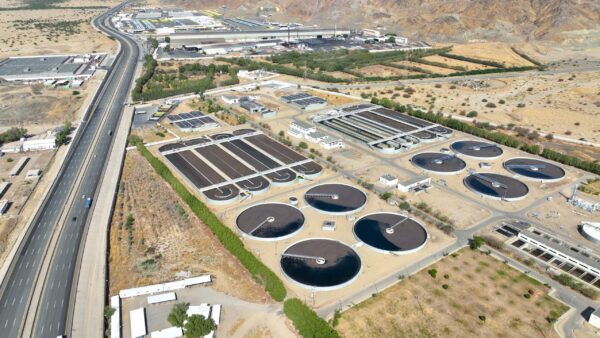

Since 1976, Hill has been providing owner’s representation, construction and project management, and a variety of support services for water and wastewater projects around the world. Some of these are among the most complex projects in our portfolio. In addition to managing costs, schedules, and quality, Hill’s professionals have been committed to finding the most efficient solutions on water projects and have added value by recognizing opportunities to incorporate innovative systems and to promote future efficient usage of our resources.
This year, the annual United Nations initiative World Water Day is celebrating its 27th year of vigorously promoting importance of water worldwide. Celebrated since 1993 on each March 22, World Water Day raises awareness on resources and responsible usage with a variety of events and fundraisers.
World Water Day 2020’s theme is “Water and Climate Change.” This year’s initiative aims to show how the two, water and climate change, are inextricably linked. The campaign highlights how our use of water can help reduce floods, droughts, resource scarcity, and pollution, and ultimately fight climate change itself.
At Hill, we have always been aware of the need to identify and implement more efficient water systems. Finding and implementing the most efficient solutions has been part of our work on every kind of project around the world, but we understand, in particular, the importance of efficiency in water usage. Water supply systems, wastewater treatment plants, environmentally sensitive construction projects, and hazardous waste remediation projects each have unique time, cost, and risk challenges. Hill has managed hundreds of such projects and their complex environmental considerations and challenges. Our project management, project management oversight, and technical support services have helped clients all over the world and our solutions have contributed to a more efficient and proactive water usage globally.
Hill has helped public owners develop, build, rehabilitate, and upgrade water and waste water systems of all types. In Europe, we are helping countries modernize their water and wastewater infrastructure to greatly improve the quality of life of citizens. In the U.S., we have helped municipalities comply with environmental requirements and build more sustainable facilities. Our projects have included hundreds of miles of water pipelines and dozens of treatment plants. Our teams have overcome all type of conditions, including cultural and political challenges throughout the world.
In its continuous effort to raise awareness for our most valuable limited resource, the United Nations has constructed its 2020 campaign with three key messages:
We cannot afford to wait.
Water can help fight climate change.
Everyone can do something to fight climate change.
Some water related facts:
As every year, an entire information platform has been developed by the United Nations to provide accurate materials. Please visit https://www.worldwaterday.org/ for more.
Share

June 23, 2025 | Articles
Jeffrey Hurley Joins Hill’s Northern California Rail Practice

June 23, 2025 | Articles
Ready, Set, Grow: First VP Chad Koelling Takes Charge of Hill’s Mountain West Region

June 8, 2025 | Articles
PMO in Saudi Arabia: The Holistic Approach to Realizing a National Mega-Portfolio

June 1, 2025 | Articles

May 26, 2025 | Articles

May 12, 2025 | Articles
Keeping Your Water/Wastewater Programs Flowing with Public Relations

April 27, 2025 | Articles
Oiling the Machine: Steps to Successful Permitting on Infrastructure Megaprojects

April 20, 2025 | Articles
Sustainable Scaling: Solutions for Managing Risk on Europe’s Data Center Projects